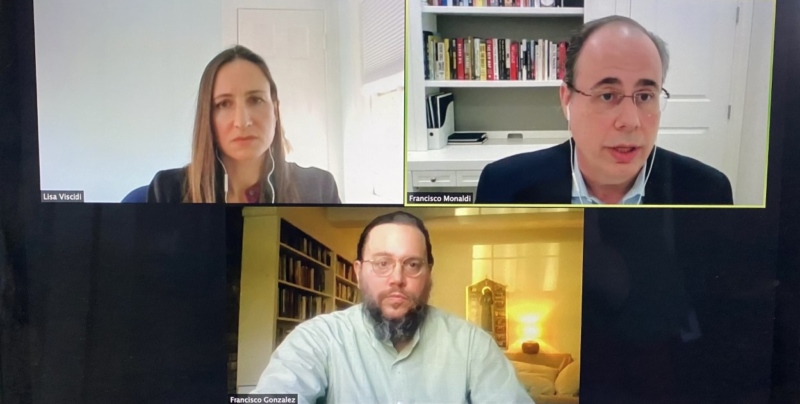The Politics Of Disaster Relief
After a 7.0 magnitude earthquake struck Haiti, the aftershock reached China in ways that few anticipated.The earthquake forced Chinese leaders to navigate the tricky politics of disaster relief.
On February 25, the Johns Hopkins University School of Advanced International Studies and the William J. Perry Center for Hemispheric Defense Studies held a webinar on security challenges in Latin America. Lisa Viscidi, director of the Energy, Climate Change & Extractive Industries Program at the Dialogue, spoke about China's role in the region's energy sector and the US response.
"China has been an important player in energy and mining in Latin America for the last decade through oil-backed loans and equity investments. This was driven mainly by a desire to access natural resources outside of China to provide energy security and the resources needed to drive its explosive economic growth. More recently, China’s investments have shifted to more advanced technologies, particularly 5G and telecommunications in general. However, Chinese companies continue to be large players in the energy sector in certain Latin American countries, for example, the oil sector in Ecuador, the mining sector in Peru, and the power sector in Brazil and Peru."
"It’s not yet clear exactly how the Biden Administration will change the approach to countering China’s influence in Latin America. But it is important to note that Biden has made it clear that he intends to take a strong stance on China, seeing its influence around the world as potentially dangerous, particularly to democracy and human rights. It’s also fair to assume that when it comes to energy in Latin America, the Biden administration will be more focused on competing with China in clean energy than the Trump administration was."
"The approach of seeking to facilitate and encourage US and other private companies to invest in the region through loans, equity investments, and aid is the best tool the United States has at its disposal to respond to Chinese influence."
[…]
After a 7.0 magnitude earthquake struck Haiti, the aftershock reached China in ways that few anticipated.The earthquake forced Chinese leaders to navigate the tricky politics of disaster relief.
As global temperatures continue to rise with the global community stalled on any way to stop them, countries must prepare to adapt to increasingly volatile environmental conditions.
Despite reports in recent months that Mexican manufacturing is experiencing a resurgence, Mexico’s industrial sector faces tremendous challenges.
 John Hopkins SAIS / YouTube
John Hopkins SAIS / YouTube